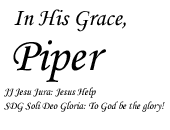
This Psalm is yet another in the category of thanksgiving Psalms in which the one praying is saved from distress. This song is a beautiful illustration of what our thankfulness to God should resemble. In this particular Psalm, David is thanking the Lord for saving him from death’s grip. In these times, saving from death’s grip does not seem distant from us. Disease, sickness, and the like are in our world and touch us all. David here rejoices once again that the Lord has snatched him from the clutch of his enemies.

I will exalt You, Lord, for You have lifted me up, And have not let my enemies rejoice over me {v.1}.
The Lord has lifted him up. The Hebrew verb used here is daloh. This word is used for drawing water from a well.[1] The Lord saved him from the deep pit of despair, and we know that we can have the same confidence when we cry out to God, He hears us and will draw us up from despair. The language here may indicate that his enemies may not have caused his despair, but rather that they gloat that death or despair has him in its clutches. Either way, the Lord has lifted him out and he seeks to thank the Lord for His goodness and mercy; David exalts the Lord and praises Him. I will extol your virtues with the highest of praise.[2] How can you praise the Lord today? This week? This month? Let’s become grateful today and cultivate a heart that is thankful and worshipful. The Lord is pleased when we fully depend on Him and He not only hears our cries, but He welcomes them. This confidence, this belief that God answers when called upon is essential to the “prayer Psalms” and this Psalm celebrates its vindication.[3] David did not want to give the enemy the last laugh.Lord my God, I cried to You for help, and You healed me. Lord,
You have brought up my soul from Sheol; You have kept me alive, that
I would not go down to the pit {vv. 2-3}.

Ellicot’s commentary speaks so beautifully of this:
“Sorrow is the wayfarer who comes to the tent for a night’s lodging, but the metaphor of his taking his leave in the morning is not carried on, and we have instead the sudden waking with a cry of joy, sudden as the Eastern dawn, without twilight or preparation. Never was faith in the Divine love more beautifully expressed.”[7]
“Consider it all joy, my brothers and sisters, when you encounter various trials, knowing that the testing of your faith produces endurance. And let endurance have its perfect result, so that you may be perfect and complete, lacking in nothing {Jas. 1: 2-4 NASB}
God’s anger lasts only for a short time. But when we cry out in prayer, repent, and pray for mercy, we can expect joy once again. We can have joy now even when it is dark. Though it is dark this side of the trial on the other side is exceeding joy!

Everything David has he recognizes as God’s favor on his life. He knows that without the Lord he would have nothing. The Lord anointed him king and gave him riches and honor; this was not David’s doing but the Lord’s. Our hearts should resemble the psalmist’s in that we acknowledge before the Lord that all we have, the roof over our head, the clothes on our backs, the breath in our lungs…is from the Lord and He deserves our thankfulness and praise. We must constantly be aware that no matter how hard some of our trials are, that life is a gift from God, and what better way to acknowledge this than through our worship.

Now as for me, I said in my prosperity, “I will never be moved.” Lord, by Your favor You have made my mountain to stand strong; You hid Your face, I was dismayed {vv. 6-7}.
David is explaining here that while everything seemed to be going his way, that nothing could shake him. But then he was shaken. This happened to me and can happen to all of us. Just when things seem to be fine, they can change in a moment. The Lord sometimes uses the trials and hard times that we experience to shake us out of reliance on the things of this world and to shift our focus back to Him—the only place our security is found. But it was during this trial in the deep pit of despair that caused David to feel as though God had turned His face from him and as we see in verse 8, David sought Him in prayer.
We will all be faced with hard times and trials. It is in these hard times that we need to seek the Lord. When hard things hit our lives we have two choices; either turn away from God or turn to God. When we trust in Him there is deliverance; not always from the trial itself (though that may happen) but from the power that it has over us. We can say like David that “I will not be shaken.” In agony, David cried out to God and bared his soul. We read that he had indeed secret wrestlings with God; he had his complaints and objections, cries, and pleadings. His rhetorical questions are a part of those wrestlings. Yet, God still heard Him and rescued Him from the pit. He prayed in the dark. We must pray while it is dark. Prayer is a constant source for us. When we are at the end of our rope and the end of ourselves the mercy seat awaits us. For we have this confidence that we can approach the throne of grace to obtain all that we need {Heb. 4:16}. Though an earthquake erupts and shakes our mountain, God’s throne of grace remains sure and will always welcome us to seek refuge in His presence. Always turn to prayer and have faith that He hears and answers. When He rescues do not forget to praise Him. He deserves our worship. He is worthy of all glory, honor, and praise {Rev. 4:11}.
David reminds the Lord that he cannot praise him or tell others of His marvelous works if he does not rescue him. The Lord heard him and rescued David from the pit. David asked that he could live to sing His praises.
I love Matthew Henry’s words on praise and worship to the Lord:
“We ask aright for life, when we do so that we may live to praise him. In due time God delivered the psalmist out of his troubles. Our tongue is our glory, and never more so than when employed in praising God.”[8]
[1] Robert Alter, The Book Of Psalms (New York: W.W. Norton & Company, 2007), 102.
[2] Avrohom Chaim Feuer, trans., Nosson Scherman, and Meir Zlotowitz eds, Tehillim Vol.1 (Brooklyn: Mesorah Publications, 1995), 360.
[3]
Craig C. Broyles, Understanding The Bible Commentary Series: Psalms (Grand
Rapids: Baker Books, 1999), 155.
[4]
Alter, 102.
[5]
Tehillim, 362.
[6]
Broyles, 154.
[7]
Charles
John Ellicott, An Old Testament Commentary
For English Readers, Vol. 4 (London: Cassell and Company, 1897),129.
[8] Matthew Henry, Matthew Henry’s Concise Commentary On The Whole Bible (Nashville: Thomas Nelson, 1997), 479.




No comments:
Post a Comment